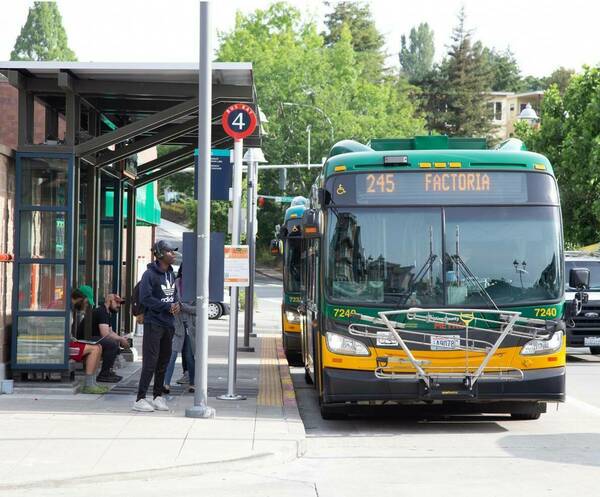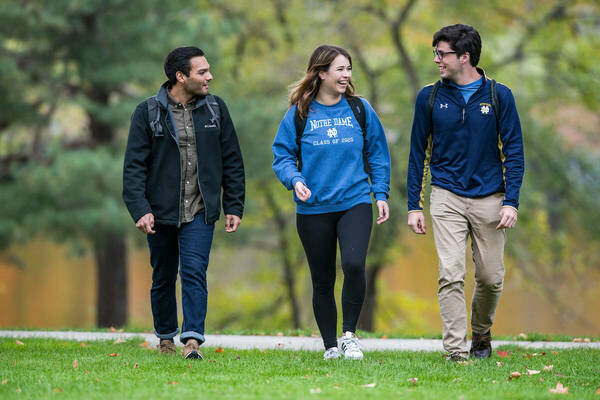Initiative on Solving Homelessness

LEO and the Pulte Family Charitable Foundation are joining forces to engage in rigorous evidence building and identify effective homelessness solutions that move people out of poverty. We’ve invited seven innovative organizations from across the country to be a part of this initiative:
- Catholic Charities; Dallas
- Catholic Charities; Northern Nevada
- Center for the Homeless; South Bend
- Family Promise; New Jersey, Michigan, and Washington
- Solutions for Change; San Diego
- St. Vincent de Paul; Phoenix
- The Lord’s Place; Florida
This summer, these partners and LEO will collaborate to identify problems and brainstorm solutions to transform the homeless services sector. This fall, they will start phase 2 of the process, focused on research design and implementation.

Dissemination to Policymakers
Members of the LEO team have been working with policymakers in multiple Senate and House offices to discuss:
- Nurse Family Partnership (NFP) project with Goodwill of Central and Southern Indiana: LEO shared insights from the research study of NFP, a nurse home visitation program for first-time mothers, to inform policymakers as they consider ways to enhance the federally funded Maternal, Infant, and Early Childhood Home Visiting (MIECHV) program.
- AmeriCorps Seniors project: We shared progress on LEO’s efforts with our AmeriCorps Seniors partners to build rigorous evidence around the Senior Companion Program, which pairs volunteers with elderly and homebound Americans in their community. The hope is that both parties benefit from the budding friendship and measures of health and self-sufficiency get a boost as a result.
- Projects in King County, Washington: LEO updated policymakers on several active research studies in partnership with King County, Washington that address transportation, housing stability & COVID, homelessness prevention, and criminal justice to help inform their decisions.
“Evidence Matters" Series
LEO is teaming up with our partners in King County, Washington to present our online webinar series, “Evidence Matters.” Last fall, we started strong with the What is Impact Evaluation? event on how government and service providers can use impact evaluations to deepen the positive outcomes of their work. We built on our success with additional sessions of our Building Great Research-Provider Partnerships subseries including Part I: Preparing for Evaluation and Part II: After the Evaluation. We’re excited to start this summer with the newest addition to the series: The Power of Learning Agendas.
Fundraising Successes
The Smith Richardson Foundation renewed its support of LEO's research with a $600,000 center-based grant that will go a long way in helping LEO build more evidence, share our discoveries with key stakeholders, and achieve the goals in our 10-year strategic plan. Flexible funding from supporters like the Smith Richardson Foundation has helped LEO build the team and capacity to work closely with front-line service providers across the country to build evidence around their poverty programs.
The Raskob Foundation for Catholic Activities recently invested $50,000 in LEO's work to build a culture of evidence in the Catholic social services sector. The Raskob Foundation's grant award will allow LEO to move the needle on the way Catholic nonprofits view evidence building and its role to better serve low-income families.
Longtime LEO partner, J-PAL North America, recently awarded funding for LEO's study evaluating the impact of comprehensive, wraparound services on high school completion in two large school districts. The program strives to provide the necessary support for students to overcome obstacles and increase their likelihood of high school graduation, post-secondary education, and employment. This $50,000 investment is the third grant J-PAL has awarded LEO over the last year and another example of the ongoing support that makes LEO’s work possible.
LEO Scholars Program in Growth Mode

Notre Dame students have a desire to serve those experiencing poverty, and LEO provides them the chance to apply what they’ve learned in the classroom to our anti-poverty research. Since 2012, LEO has employed 76 undergraduate scholars who assist in creating evidence and work closely with our research teams and service provider partners. We now want to make the LEO Scholars program a deeper experience while significantly increasing the number of participants. Growing the number of undergraduate students who engage with LEO’s work is a key part of our efforts to make LEO a top resource for domestic poverty solutions.
LEO has strong community partners in the Pacific Northwest, like King County (Seattle) Metro who we worked with to study the impact of interventions like the Youth and Family Homelessness Prevention Initiative and Transit Subsidy Income-Based Fares. This summer, we’re returning to Seattle to launch a new location-based cohort centered around housing and homelessness prevention starting with our July workshop—a key component of our partnership process where cohort members are paired with their research teams for impact evaluation training and preparation. Bringing together these like-minded groups helps them build a powerful support network so they can lean on and learn from each other throughout the research process.
Join our mailing list for LEO news and events delivered right to your inbox.